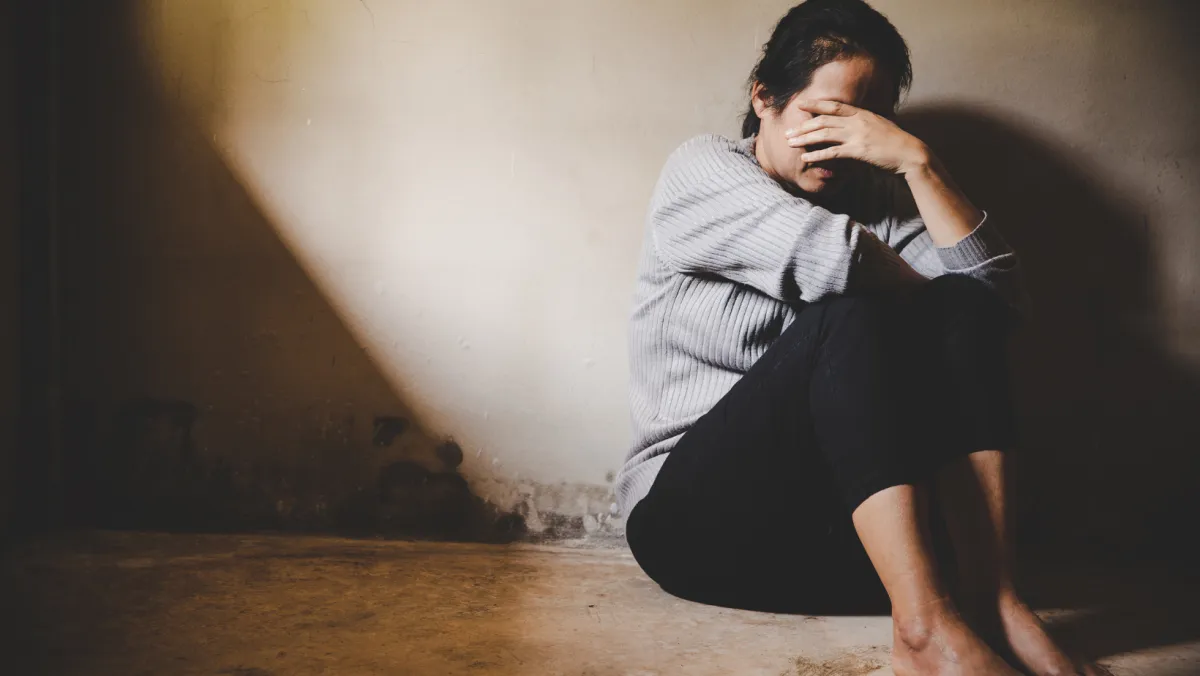Transform your life with Heidi´s trainings

Stop! We have all misunderstood the causes of depression.
The real causes of depression have been identified and they are not at all what YOU think.
In today's Western society, if you go to the doctor with anxiety or depression because you can't take it anymore, you're likely to get told this kind of stuff: You feel this way because your brain isn't working properly and isn't producing the chemicals it needs. You need to take medicines to fix your broken brain. That's what Johann Hari was told when he was a teenager in the 1990s:
"I tried this strategy for over 10 years. I longed for freedom. The canes gave me a little extra push, but soon enough the pain returned. Finally, I took the maximum dose for over 10 years and thought there was something wrong with me because I was taking the drugs but I was still in pain."
Eventually, his need for answers was so strong that he spent 3 years at Cambridge University researching what really causes depression and anxiety, and how to really treat them. Quite a few of the results surprised him. The first was that his reaction to his medication was perfectly normal.
Depression is often measured using the Hamilton Scale. It ranges from 0 (you're dancing for joy) to 59 (you're suicidal). By adjusting your sleep, you can move up or down 6 points on this scale. According to Professor Irving Kirsch (Harvard University), antidepressants will give you a 1.8-point improvement on the Hamilton Scale - a real but modest change. Of course, it's an average score, which means that some people score better. But for many people, it is not enough to overcome depression, so Johann started to look for more ways to help people suffering from depression and anxiety. Above all, he wanted to disprove the claim by many scientists that depression is caused by a chemically imbalanced brain.
He learned that there are 9 basic causes of depression and anxiety that manifest themselves around us all. Two of these are biological and the other seven surround us in our world, not nest inside our skulls. All the causes are quite different and therefore affect different people to different degrees. Johann was even more stunned to discover that his finding was not the first of its kind - the World Health Organisation (WHO) had been warning for years that it needed to address the deeper causes of depression.
"I want to write here about one of the most difficult reasons for me to investigate. All 9 causes are different, but there is one long-standing cause that I avoided for almost all the 3 years I was researching," Johann writes. He only thought about it in San Diego when he met the great scientist Dr. Vincent Felitti. "I have to say right away that researching this cause was quite painful for me as it forced me to deal with something I had been running away from most of my life. I can see now that one of the reasons I clung to the broken-brain theory that the doctors told me was so that I wouldn't have to think about it."
Dr Felitti's ground-breaking research dates back to the mid-1980s, when the revolution occurred entirely by chance. At first it seems as if there is no depression at all, but his journey is worth following because it can teach us a lot.
***
When patients first entered Felitti's office, some had difficulty fitting through the doorway. They had very severe obesity and had all been referred to this clinic as a last resort. Medical supplier Kaiser Permanente asked Felitt to find out how to tackle the company's costs of obesity by starting from scratch and trying anything.
One day, Felitti had a very simple idea: "What would happen if all these overweight people stopped eating and lived off the fat reserves they've built up in their bodies - with a monitored diet - until they were at a normal weight? What would happen?" Patients tried it cautiously and under strong medical supervision and amazingly it worked - they lost weight and were on their way to a healthier body.
But then something strange happened. There were people on this programme who lost an incredible amount of weight, and all the doctors and even the patients' friends expected these people to respond with overwhelming joy at the results, but instead these people fell into a deep depression, panic and even rage. Some even became suicidal. Without their mass, they felt vulnerable. Often, they gave up the programme, gorged themselves on fast food, and very quickly regained the pounds they had lost.
Felitti was baffled until he spoke to a 28-year-old woman who Felitti helped drop from 185 kilograms to 59.9 kilograms in 51 weeks. Suddenly, for no apparent reason, she put on 16.8kg in just a few weeks and soon she was back up to 181kg. Felitti asked him what changed when he started to lose weight - it seemed mysterious to them both. They talked for a long time until she told them that one thing happened: when she was overweight, no man paid attention to her, but when she reached a healthy weight, one man proposed - for the first time in a very long time. She ran away and immediately started eating compulsively and couldn't keep it down. At that moment, Felitti asked the woman a question he hadn't even thought about before: "Since when did you start gaining weight?" The woman thought about it, and then replied that she had started when she was 11 years old. Dr Felitti went on to ask if she remembered if anything else happened when she was 11? The woman replied that was when her grandfather started raping her.
Felitti then spoke to 183 people in the programme and 55% of them admitted to being sexually abused. One woman said she started gaining weight after being raped because "overweight people are ignored and I want to be ignored." It turned out that many of these women had subconsciously made themselves overweight to protect themselves from male attention because they feared men would hurt them. Suddenly, Felitti realised, "What we were treating as a problem - being overweight - was actually very often the solution to a problem that nobody knew about."
This discovery led Felitt to a major research programme funded by the Centers For Disease Control and Prevention. He wanted to find out how all the traumas we experience in childhood affect us in adulthood. In San Diego, he sent simple questionnaires to 17,000 ordinary patients who came to the hospital for routine care - everything from headaches to broken bones. The questionnaire asked if any of 10 negative things happened to you in childhood, such as being neglected or experiencing emotional abuse. You were then asked if you had any of these 10 psychological problems, such as obesity, depression or addiction. The results seemed quite incredible. Trauma in childhood caused depression to set in during adulthood. If you have had a traumatic event in childhood in one of the seven categories, you have a 3.1% greater chance of committing suicide as an adult and over 4% greater risk of becoming an addict.
***
After a long conversation with Dr Felitt, Johann walked shakily to the beach in San Diego and threw himself into the ocean. "He made me think about the background of my depression, which I didn't want to think about. When I was a child, my mother was ill and my father was abroad, and in the chaos I experienced horrible violence at the hands of an adult, including being strangled with an electrical cord. I have tried to lock these memories away, to silence them in my memory. I refused to admit that they had an impact on my adulthood," Johann writes.
Why do so many people who experienced violence as children feel the same way later on? Why does it lead many of them to self-destructive behaviour such as obesity, addiction or suicide? Johann has spent a lot of time pondering this and has a theory for it, but wants to stress that it is not based on scientific data discovered by Felitti and the CDC and he cannot confirm that it is all true.
As a child, you have very little power to change the environment in which you grow up: you can't move or force anyone not to hurt you. So you have two choices:
1) You admit to yourself that you are powerless, that any moment someone could come along and hurt you very badly and there is nothing you can do;
2) you tell yourself it's all your fault.
If you choose the second option it actually gives you some power - at least in your own mind. If it's all your fault, there is something you can do to change the situation. You're not the ball in the pinball machine, bouncing off the walls, you're the one controlling the machine, your hands on those dangerous levers. Just as being overweight protected women who feared men raping them from men, blaming yourself for childhood traumas protects you from seeing how vulnerable you were and are. You can be empowered. If it was all your fault, then, bizarre as it may seem, it is all in your control. But it all comes with a price - if YOU were to blame for all that happened, then at some subconscious level you begin to think that YOU deserved it. A person who thinks and believes in childhood that they deserve to be hurt doesn't think very highly of themselves in adulthood. This is not true, but it is what enabled you to survive in your earlier life.
What helped Johanni the most was Dr Felitt's discovery that when perfectly ordinary patients, by answering a questionnaire, revealed that they had experienced trauma in childhood, the doctor asked their doctors to do something at their next visit - namely to say to these patients, "I know you experienced something very bad in childhood.". I'm very sorry that it happened to you. Would you like to talk about it?"
Felitti wanted to know whether talking about the trauma with a trusted authority who can confirm that it was not the victim's fault would help them to overcome their shame. But what happened next was astonishing. Simply talking about their trauma dramatically reduced future morbidity - they needed 35% less medical care over the following year. Patients who also received additional help saw their need for medical care drop by as much as 50%. One elderly woman, who had been raped as a child, wrote a letter saying: "Thank you for asking... I was afraid I was going to die and no one would ever know what happened."
Getting rid of shame is in itself healing. Johann went to people he trusted and told them what had happened to him as a child. No one shamed him, no one thought he was broken because of his past experiences - instead they showed love and helped him grieve for what he had been through.
As Johann listened again to the long conversations with Felitti, it occurred to him that Felitti was telling people the same thing that Johann's doctor had told him - that they had a broken brain, that's why they were so stressed and the only option was to take pills - they would never know what was really causing the problem and so they would never get over it.
"The more I researched depression and anxiety, the more I became convinced that it is not caused by a dysfunctional brain but by incidents that have happened to us in the past. If you think your work is unimportant and you have no control over it, you are quite likely to fall into depression. Also, if you are lonely and feel you have no one to lean on and no one to help you, and if your life consists of nothing but buying things and climbing up the ladder and you think your future is very uncertain," explains Johann. Increasingly, he began to find scientific evidence that depression and anxiety don't start in our skulls but in the way many of us are forced to live. There are also biological factors, such as genes, that can make you more emotionally susceptible, but these are not the main indicators. "This led me to the scientific evidence that we need to start looking for other solutions to depression and anxiety disorders (besides antidepressants, which of course should still be an option)."
To do this, it is necessary to stop seeing depression and anxiety as pathological disorders and bizarre distortions in brain composition. Your pain isn't just a random spasm - it's your body's response to what's happening to you. To deal with depression, you need to address the underlying causes. In his long journey, Johann learned about seven different antidepressants - those that bring the causes to the surface rather than mask the symptoms. Getting rid of shame is just the beginning.
One day, a colleague of Dr. Felitti's, Dr. Robert Anda, said something to John that he still thinks about today: "When people behave in a destructive way, you have to stop asking what's wrong with them. Instead, you have to ask what happened to them."

© 2025 Heidi Plumberg International OÜ

